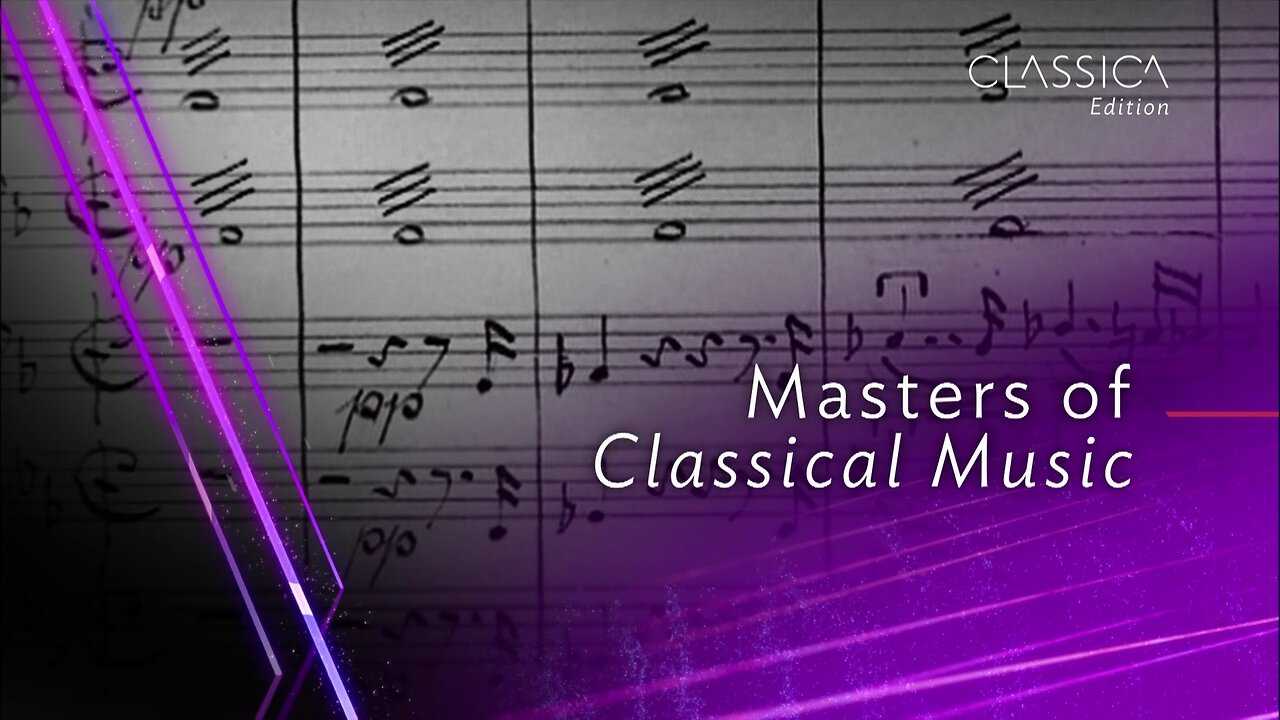Premium Only Content

Masters of Classical Music | Discovering Beethoven's Symphony No. 5 (Episode 5)
Claudio Abbado at the Accademia Nazionale di Santa Cecilia, Rome (2001) with the Berlin Philharmonic, and hosted by Wulf Konold who analyzes the composer Ludwig van Beethoven's most famous works. Audio in English, with subtitles for the German parts.
The first four momentous notes of Ludwig van Beethoven's Fifth Symphony are perhaps the most instantly recognized in all of Western classical music. 'Thus Fate knocks at the door!' announced the composer- at least, according to the apocryphal story. Since then the symphony, from the dramutic opening bars to the blazing C major finale, has come to symbohize Beethoven at his most gloriously heroic. The influential critic and theorist A.B. Marx (1795-1866) even went so far as to proclaim that the work embodied 'the decisive fate of all mankind'. Yet the symphony itself is altogether more complex und enigmatic than such declarations suggest.
Following the premiere of the Fifth, Beethoven's reputation as a composer continued to flourish. Even the encroaching deafness that would, by 1814, become virtually absolute could not dampen his genius. In defiance of his hearing loss, he went on to produce such masterpieces as the choral Ninth Symphony, the Missa Solemnis and the late quartets - music of extraordinary beauty, grace und visceral power. He was soon firmly established as one of the most famous and revered musical figures of the age, and became almost an object of pilgrimage for aspiring young composers. The conversation books, which due to his deafness were his primary means of communication, record many of these encounters. In late 1826 Beethoven fell seriously ill, and, on 26 Murch of the following year, he died. Such was his renown that more than 20,000 people came to pay tribute to him at his funerul three days later, including Franz Schubert, who was one of the torchbearers.
-
 49:28
49:28
Adaneth - Arts & Literature
5 days ago1000 Years of Karakami Art
591 -
 1:07:03
1:07:03
Winston Marshall
2 hours agoEXCLUSIVE : Oliver Anthony On Life After ‘Rich Men’, The Christian Counter Culture and The Elites
10.6K4 -
 1:44:47
1:44:47
Russell Brand
3 hours agoDigital Censorship & Political Warfare: X Attacked, Rand Paul Rebels, Free Speech on Trial – SF551
85K16 -
 LIVE
LIVE
tastylive
2 hours agoLIVE Stocks, Options & Futures Trading with the Pros! (Market Open -> Close & More) March 11th, 2025
163 watching -
 1:35:59
1:35:59
Simply Bitcoin
3 hours ago $1.31 earnedTrumps Bitcoin Embrace TERRIFIES The EU | EP 1200
17.6K3 -
 2:00:05
2:00:05
The Charlie Kirk Show
3 hours agoThe Left Regroups + Deporting Hamas Lovers + Love Is Blind? | Rep. Donalds, Dr. Arnn | 3.11.25
78.5K8 -
 30:41
30:41
BonginoReport
22 hours agoTrump Pulls Ultimate Uno Reverse Card On Illegals (Ep.1) - 03/10/2025
120K510 -
 34:53
34:53
Grant Stinchfield
21 hours ago $2.51 earnedDoctored Photos and Phony Stats, How The Media is Weaponizing the Measles... Again!
27.3K5 -
 1:08:03
1:08:03
TheAlecLaceShow
3 hours agoGuests: Senator Bernie Moreno & Anne Fundner | Trump Calls For Massie Primary | The Alec Lace Show
11.2K -
 55:34
55:34
The Dan Bongino Show
6 hours agoThe Deep State Purge Intensifies (Ep. 2439) - 03/11/2025
633K850